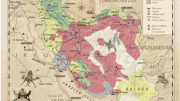President Trump’s fixation on tearing up the Iranian nuclear deal is leading him to miss — or worse, fuel — the real threat that Iran poses.
Every administration faces the challenge of setting priorities with a limited amounted of political capital and time. That’s especially critical for this president, with his national security team understaffed and in constant turmoil. By spending so much energy attacking the functioning nuclear deal, Trump is making it harder for his administration to develop an effective response to a problem that actually does exist: Iran’s non-nuclear aggression across the Middle East.
Republicans often accused the Obama administration of securing the nuclear agreement at the expense of pushing back effectively against Iran’s actions on other fronts. But now, despite talking tough and hiring hawks like national security advisor John Bolton and Secretary of State Mike Pompeo, it is Trump who is failing to push back on Iran as he focuses solely on killing President Obama’s deal.
What’s the president missing? Iran’s centrifuges are no longer operating, but the military buildup by the Islamic Revolutionary Guard Corps continues unabated. The Revolutionary Guard has a network of proxies across the region. It exerts influence in Syria with direct support for dictator Bashar Assad, in Iraq through Shia militias, in Lebanon through Hezbollah, in Yemen through the Houthis, and in Gaza through Hamas. This broad regional reach gives the guard a presence on the borders of Israel and Saudi Arabia. Iran also has been accused of organizing and arming government opponents in the Sunni Gulf states.
Killing the nuclear deal won’t address a single one of these issues, but it will weaken Iranian leaders who favor engagement with the West while empowering the Revolutionary Guard and other hardliners. If Trump were serious about pushing back on Iran, here are four steps his administration would be taking.
First, he would prioritize ending the flow of personnel and equipment from Iran to its proxies. The Revolutionary Guard uses air, land and sea routes to move arms across its network, aided by cooperative governments in Iraq and Qatar that allow unfettered access to their airspace and ports. The administration needs a coordinated diplomatic approach using carrots and sticks to get Iraq and Qatar to crack down on Iran’s weapons shipments. Instead, Trump has neglected Iraq and backed the Gulf countries’ blockade of Qatar, which has driven Doha closer to Tehran.
Second, Trump should mobilize a broad international effort against Iran’s proxies, instead of wasting political capital arguing with America’s allies and partners about a nuclear deal they all support. The administration should designate Hezbollah as a Transnational Criminal Organization — it’s remarkable this hasn’t happened yet — and then press countries across Latin America and Europe to follow suit. Secretary of Defense Jim Mattis had the right idea in his confirmation hearing when he called for a global shaming campaign to shine a spotlight on Iran’s bad behavior, but this also hasn’t happened. And Trump should direct the intelligence community to share with foreign governments the tail numbers of Iranian aircraft known to have been used to transfer weapons and urge them to deny access even if the flights are now carrying civilians.
Third, the administration should keep Tehran from building a bigger military presence in Syria. Trump has made it clear he wants to pull U.S. troops out of Syria, but that would allow the Revolutionary Guard to further stockpile weapons and forces that could be used to attack Israel. The guard used a similar playbook in Lebanon, where it established forward bases with as many as 120,000 missiles pointing at Israel. Trump should instead be developing a plan to contain or reduce Iran’s presence in Syria. That doesn’t mean the U.S. must have a permanent military presence, but the administration can’t outsource the problem to others. At a minimum, the president should be surging intelligence, surveillance and reconnaissance assets to keep a closer eye on Iran’s activities within Syria.
Finally, the administration should be tackling the Revolutionary Guard directly. Its leaders have a firm grip on much of the Iranian economy and they benefit from a loophole in U.S. law that allows foreign investment in companies in which the guard maintains “minority” ownership. There’s a bipartisan bill pending in Congress authorizing the administration to close that loophole, but it hasn’t done it yet.
Another important step that would weaken the Revolutionary Guard is one Trump apparently doesn’t want to take: leaving the nuclear deal in place. Trump’s disdain for the deal is blinding him to its benefits. It puts a lid on Iran’s nuclear program, and facilitates foreign investment. That diversification is reducing the Revolutionary Guard’s economic dominance. Ripping up the deal would undo all that. Instead, the administration should build on what’s been gained, perhaps by offering to lift remaining sanctions in exchange for specific concessions on Iran’s ballistic missile program.
For all his threats and bluster, Trump actually is going easy on Iran. By focusing so intently on the nuclear deal he has lost sight of a larger strategy that would effectively contain Iran in the region. And if Trump does kill the Iran nuclear deal, he will be strengthening the hardliners and the Revolutionary Guard, who are responsible for Iran’s worst behavior. It’s an upside-down policy.
Source: www.latimes.com



Be the first to comment at "Trump is going easy on Iran"